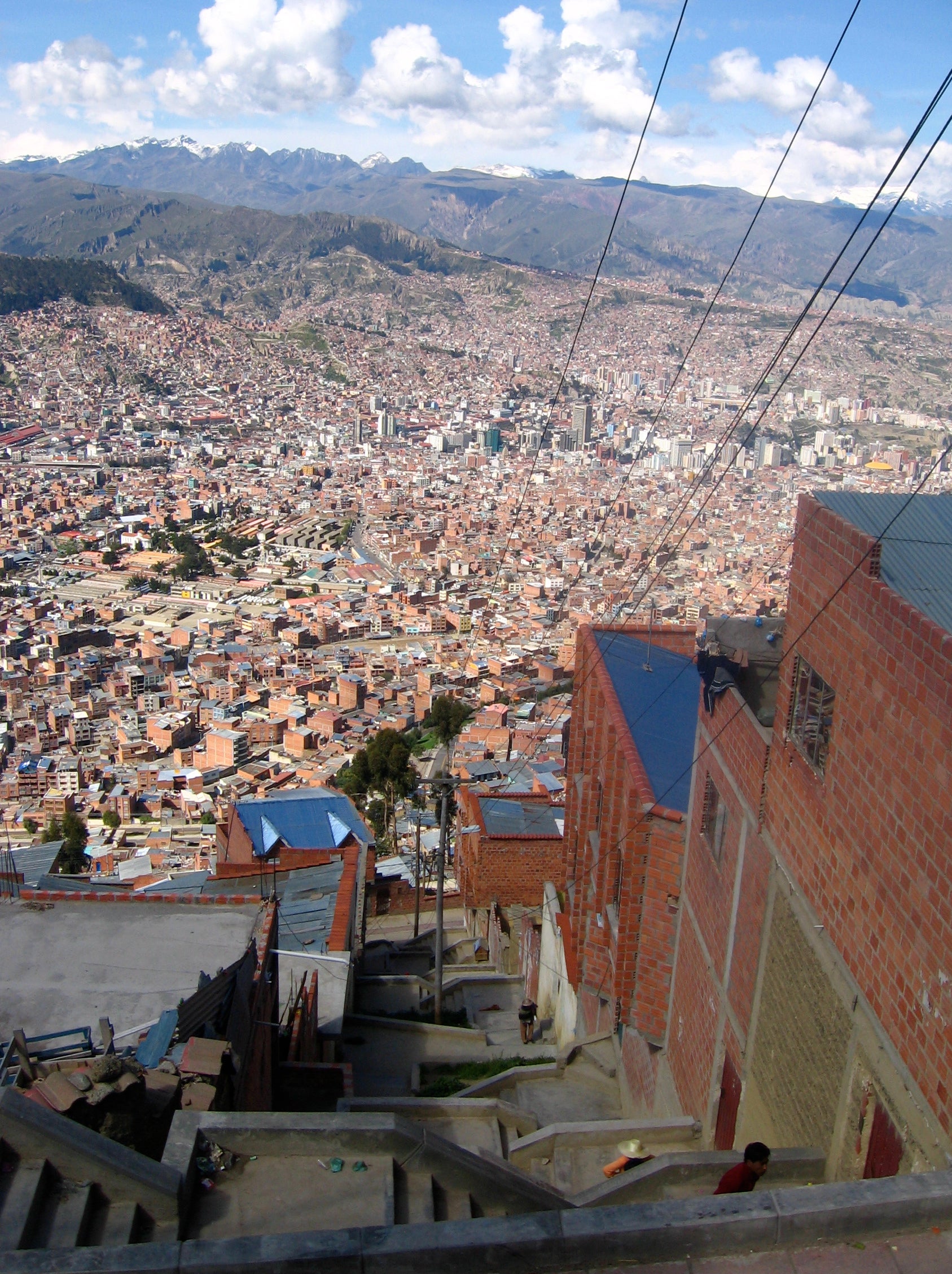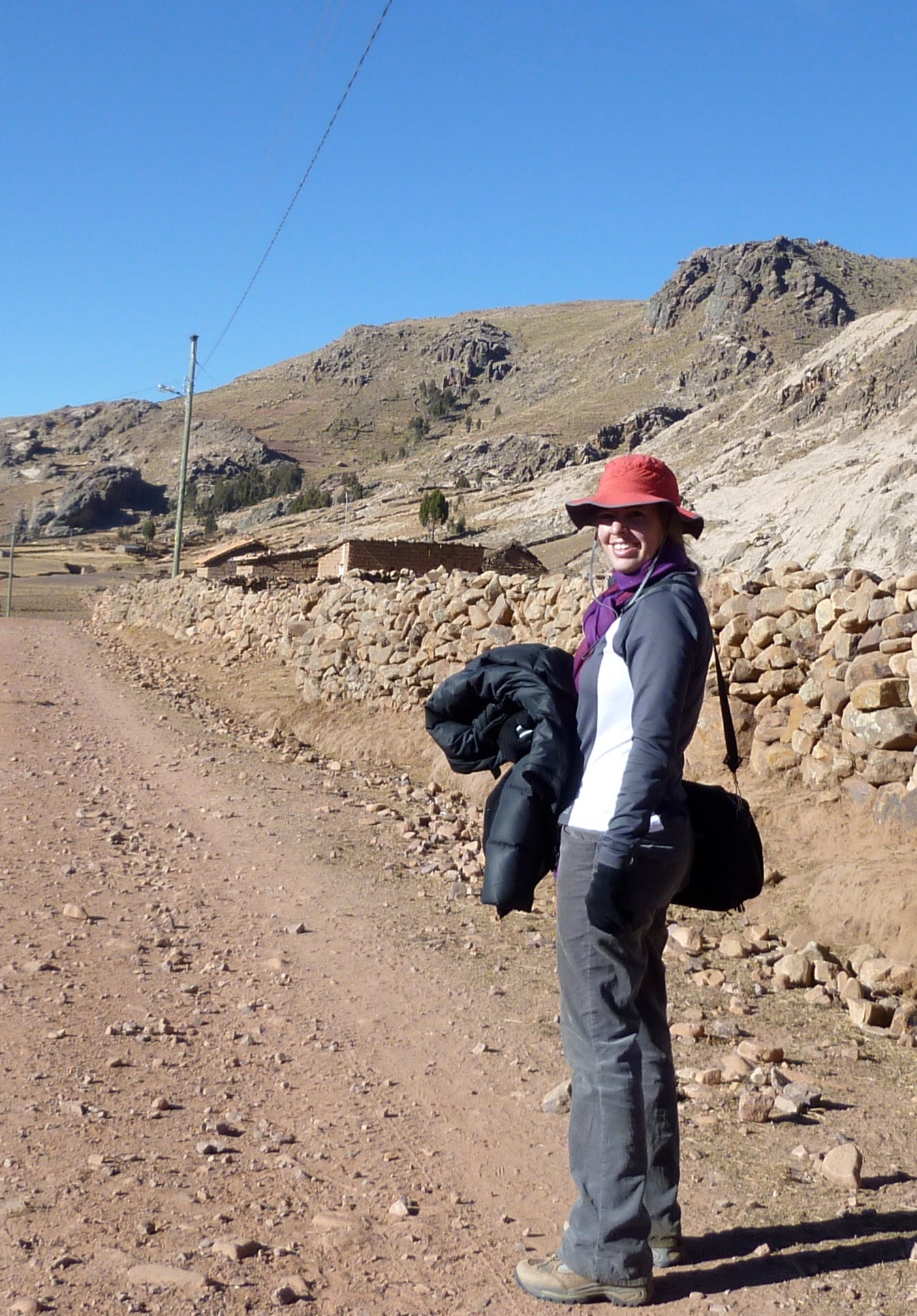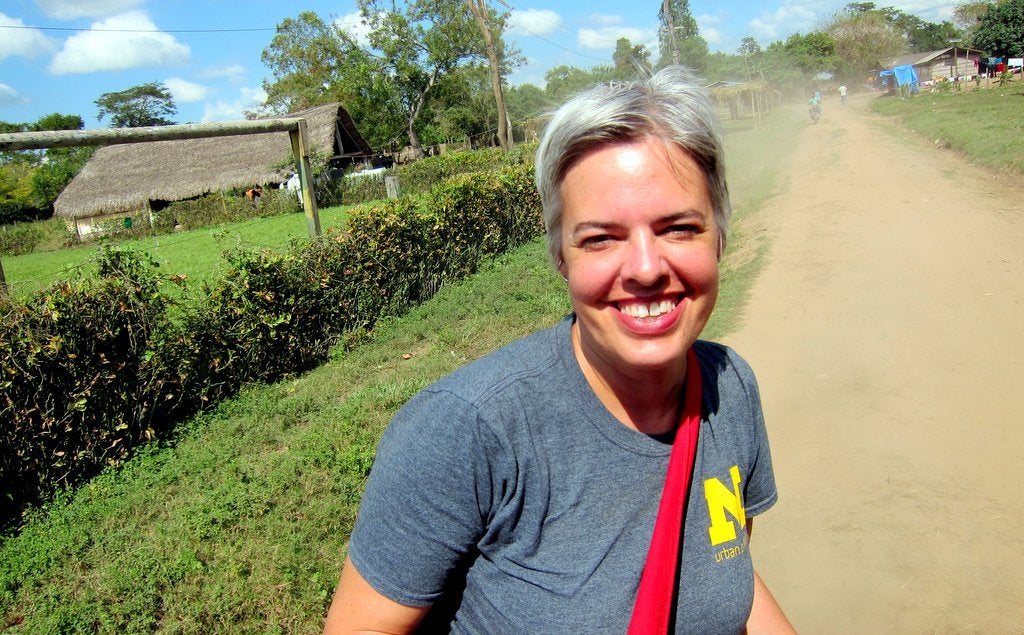Lesli Hoey | Assistant Professor of Urban and Regional Planning & Sustainable Food Systems cluster hire
Date: February 2016
Dr. Lesli Hoey has a boundless energy and appetite for change that permeates her personal and professional life. As a dual citizen of Bolivia and the U.S., Dr. Hoey is interested in facilitating change in food systems, international planning and development.
 Where did you grow up? Until I was 18, I lived in rural Bolivia, western Pennsylvania on my grandparents’ farm, and Little Rock, Arkansas.
Where did you grow up? Until I was 18, I lived in rural Bolivia, western Pennsylvania on my grandparents’ farm, and Little Rock, Arkansas.
What is your strongest food memory? My fondest memory is of my dad making cheese in Bolivia. I loved sneaking some of the salted curds just before he would press them!
Have any particular authors, articles or documentaries had a significant impact on you? Which one(s)? Kicking Away the Ladder by Ha-Joon Chang and The Structure of Scientific Revolutions by Thomas Kuhn—for thinking about the role that power, evidence, and paradigms play in transformative processes. Also Rules for Radicals by Saul Alinsky and documentaries by the Yes Men—for demonstrating how social change often requires creativity and comedy.
What are you currently reading? I’m reading Carl Sagan’s Contact, but I just picked up two books from the library that I’ve always wanted to read—A People’s History of the United States by Howard Zinn and Pedagogy of Hope by Paulo Freire.
What brought you to UM? The Sustainable Food Systems cluster hire was a rare opportunity, not only because it came with a ready-made interdisciplinary group of inspiring scholars, but also because it was housed in a well-regarded planning program that offered a concentration in international planning. I also happen to have a large number of extended family that live in Southeast Michigan—my maternal grandparents actually met in Highland Park.
 Tell us about your current research interests. Currently, I’m involved in two three-year projects and several smaller-scaled projects.
Tell us about your current research interests. Currently, I’m involved in two three-year projects and several smaller-scaled projects.
(1) One project in Bolivia, with two other Sustainable Food Systems cluster hires—Andrew Jones and Jennifer Blesh—is studying the links between obesity, undernutrition, food security, household food production and variations in urban, peri-urban and rural food retail and policy environments, in both mountainous and tropical regions of the country.
(2) I’m also the principal investigator for an external evaluation of a Kellogg-funded project being led by Michigan State University’s Center for Regional Food Systems, which is facilitating efforts to achieve the Michigan Good Food Charter goals by building statewide collaborations among emerging local food councils, food hubs, and local food purchasing initiatives.
(3) I also have several smaller pedagogy-focused research projects, to learn how to better prepare future international planning and food systems practitioners.
Do you have any advice for students interested in food systems careers? Given how daunting the task of food system change can seem, it’s important to find an area where you can contribute most given your unique skills and energy. You don’t need a job title that says “food systems change agent.” You can integrate food systems into the mainstream of almost any field, by showing how efforts to build more sustainable, equitable and health-promoting food systems can also improve urban planning, public health, natural resource management, education, and many other sectors.
How do you like to spend your time when you’re not researching/teaching/working? Traveling, going on road trips, hiking, running, dancing, sleeping, gardening, drawing, painting, cooking meals with friends, game nights…
 What classes are you teaching in Winter 2016? The two courses I teach on food systems specifically will be next fall (2016)—“Foundations of Sustainable Food Systems”, an interdisciplinary course co-taught with Andrew Jones and Jennifer Blesh—and next winter (2017), “UP 525: Food Systems Planning,” which attracts students from planning, SNRE, SPH, SSW and many other fields.This term, I’m teaching “UP 658: Urban and Regional Planning in Developing Countries,” a foundational course for any student considering a future career in international development or urban planning in low-income countries, or who want to learn how global trends are linked to U.S. policies and cities. We only discuss food systems directly in one class, but many topics we cover relate to global food systems change.
What classes are you teaching in Winter 2016? The two courses I teach on food systems specifically will be next fall (2016)—“Foundations of Sustainable Food Systems”, an interdisciplinary course co-taught with Andrew Jones and Jennifer Blesh—and next winter (2017), “UP 525: Food Systems Planning,” which attracts students from planning, SNRE, SPH, SSW and many other fields.This term, I’m teaching “UP 658: Urban and Regional Planning in Developing Countries,” a foundational course for any student considering a future career in international development or urban planning in low-income countries, or who want to learn how global trends are linked to U.S. policies and cities. We only discuss food systems directly in one class, but many topics we cover relate to global food systems change.



